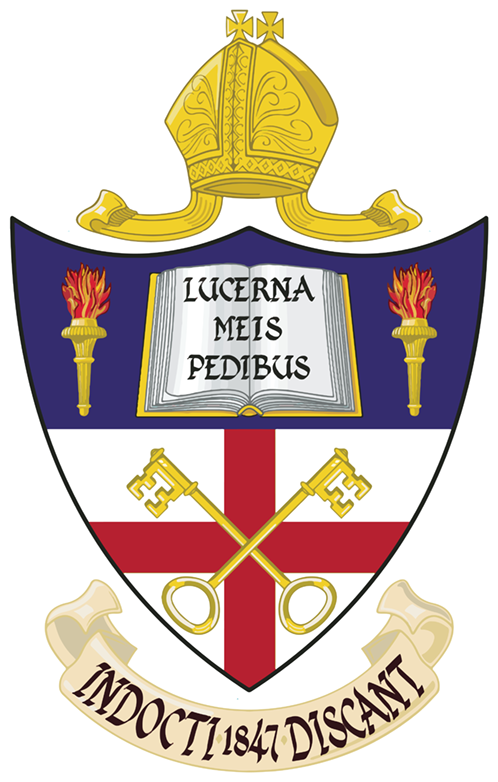College Section
Curriculum

Economics
Economics is a social science concerned with the allocation of scarce resources. The subject offers learners an opportunity to understand why and how governments, businesses and consumers act and interact in the world. Studying economics equips learners with 21st-century skills such as critical thinking, synthesising and interpreting information, recognising patterns, and identifying and developing links. The subject may lead to future careers in actuarial sciences, data analytics, development and international organisations, finance, law, marketing, and beyond.
The subject is optional at both O-levels and A-levels.

Literature in English
Literature in English is one of the most exciting and sought after Cambridge courses and one of the five globally recognised traditionally academic disciplines at O and A-levels. Both O and A-level syllabi consist of an inspirational array of pre and post 20th century as well as contemporary literary texts, including a variety of genres from poetry, prose and drama, taking the learners through a comprehensive discovery of language and its literary functions. The most potent takeaways from a literature class at KGS are the more refined analytical skills of understanding the tacit nuances of the real world around us.
The subject is compulsory at O-levels and an option for A-levels.

English Language
English Language enables students to refine their written communication and reading skills, which are core competencies that serve them both in school and beyond. The reading component teaches learners to read discerningly and apply information for specific purposes. The writing component enables them to become articulate and creative communicators, writing in various genres and for many purposes. The subject is skill-based rather than content-based, which results in students engaging in a rich variety of diverse activities in the classroom. The learning in the classroom goes well beyond the syllabus requirements and equips students to be effective communicators for life.
The subject is compulsory at O-level and an option for A-level.

English General Paper
The English General Paper exposes learners to various sources of information from interdisciplinary subject areas and creates an awareness of critical local and global issues. It builds skills to read, analyse and critique sources and then express personal opinions in an academic language.
This AS-level qualification comprises two components. In the essay component, learners discuss contemporary global issues, supported by broader reading on the issue. The comprehension component develops basic logical reasoning and problem-solving skills, along with recognising the nuances of language. The course prepares learners to be competent communicators equipped with the skills to enter a professional qualification or a workplace.
EGP is an option at AS-level.

Global Perspectives and Research
Global Perspectives and Research is a dynamic course for learners who want to engage in discourse about contemporary global issues. It is an engaging yet rigorous subject that enables students to hone their public speaking, critical evaluation and research skills while participating in lively discourse in the classroom. Coursework includes writing a research paper on a global issue, analysing varied global perspectives and delivering a ten-minute presentation on an innovative solution to a local problem. The written examination requires students to evaluate arguments and interrogate evidence reaching supported conclusions. The course encourages global competency development – the ability to define a global problem, reflect and take action. This course prepares students well for the academic rigour of university and beyond.
The GPR is an option at AS-level.

Art & Design
Art and Design introduces the learner to new media and the development of different techniques. It covers several topics, such as exploring compositions through drawing and photography and studying perspective and eye levels. Art offers the learners a variety of exploration through various media, techniques and experimentation. The learner will be gradually introduced to various painting techniques and the use of different media such as watercolours, acrylics, pen and ink and much more.
The course will prepare the learners for various art-related fields such as architecture, fashion, product design, graphic design, art history and more.
Art and Design is optional at both O-level and A-level.

Mathematics
Mathematics is a universally applicable subject and offers learners the opportunity to develop their logical thinking and problem-solving skills. O-level mathematics provides a broad and diverse introduction to multiple branches of the discipline. Additional mathematics deeply examines particular aspects of the discipline, such as calculus, and is considered a prerequisite for A-level Further Mathematics by CAIE.
A-level mathematics is a specialised and rigorous subject and offers learners the opportunity to deeply develop their logical thinking and problem-solving skills and improve their resilience. It deeply examines particular aspects of the discipline, such as calculus, and is considered a prerequisite for a wide variety of university courses, especially STEM. Learners also have the opportunity to take Further Mathematics as an A-level subject.
Mathematics (compulsory) and Additional Mathematics (optional) are offered as O-level subjects.
Mathematics (Pure and Mechanics or Statistics) and Further Mathematics are offered as A-level subject options.

Media Studies
Media Studies offers learners the opportunity to create, read and engage with a variety of media forms and texts. The AS and A-level coursework components give students a wide choice of media products to create. Additionally, the theoretical component gives pupils an insight into a range of mass communication and sociological theories. Assessment for learners includes creating a completed media product, maintaining a blog documenting the production process and a traditional examination. The subject leads to a future in journalism, film making, digital media, broadcast media, public relations, marketing and beyond.
Media Studies is an option at A-level.

Sociology
Sociology brings light to areas of heat and anger that cause agitation and conflict. It allows the learner to step back and reassess the consequences social actors face in their day to day interactions. It is a deep study of social philosophy through which individuals can explore coping mechanisms that will instil tolerance, ‘verstehen’, and social responsibility to accept ‘otherism’. They will be ‘woke’ and an integral part of the social fabric. Through engagement with theory and perspectives, the individual interprets social actions, sanctions and consequences of social control exercised by institutions that are called ‘super structures’ by the Marxists. It engenders critical thought and holds society responsible for conflict and chaos that are consequences of inequality and abuse of power politics. It critically scrutinises the myth of meritocracy that is plaguing many modern and postmodern societies. Moreover, it vividly distinguishes the difference between equality and equity. The pursuit of Sociology leads to many avenues: Law, Management Studies, Journalism & Communication.
Sociology is an option at O-level and A-level.

Psychology
The Psychology course is designed to give learners an understanding of psychological concepts, theories and research methodology. It engages with four core areas of the discipline: biological, cognitive, social and learning. Applied specialities such as abnormal, health, consumer and organisational Psychology are also explored in depth. The course encourages learners to consider the relationships between psychological findings and everyday life. It is suitable for learners who have no prior exposure to psychology. Learners develop skill sets such as insight, empathy, research, analysis and interpersonal
communication.
Psychology is an option at A-level.

Computer Science
Cyber security
Candidates should be able to:
1 Describe the processes involved in, and the aim of carrying out, a range of cyber security threats
Including:
– Brute-force attack
– Data interception
– Distributed denial of service (DDoS) attack
– Hacking
– Malware (virus, worm, Trojan horse, spyware,
adware, ransomware)
– Pharming
– Phishing
– Social engineering
2 Explain how a range of solutions are used to help keep data safe from security threats
• Including:
– Access levels
– Anti-malware including anti-virus and
anti-spyware
– Authentication (username and password,
biometrics, two-step verification)
– Automating software updates
– Checking the spelling and tone of
communications
– Checking the URL attached to a link
– Firewalls
– Privacy settings
– Proxy-servers
– Secure socket layer (SSL) security protocol

International Project Qualification (IPQ)
In consultation with their teacher, who will support them, students will:
- Identify a suitable research topic
- Devise, justify and develop an appropriate hypothesis.
- Plan and carry out the research, including, undertaking a Literature Review
- Write a 5000 word report, followed by a Bibliography.
- Use appropriate academic conventions
- Keep track of their progress, using a Research Log.
Cambridge IPQ is externally assessed (all reports are marked by Cambridge examiners). Students will be eligible for grades A* to E. Although it is a standalone qualification, it will be graded by Cambridge at the same standard as an A level.
The IPQ is an option at AS-level.

Accounting
The Accounting syllabus engages students with the relevance and applicability of accounting in real-world contexts. Students will explore the role and responsibilities of the accountant, and study areas such as financial accounting and cost and management accounting.
Studying this subject helps students to understand, apply, analyse and evaluate accounting information to help decision-making in business and communicate information to stakeholders. These transferable skills are an ideal foundation for further study and a career within accounting or related professions.
The subject is optional at both O-levels and A-levels.

World History
World History offers students the option to read, engage and study our shared past. At O and A levels,students focus on 19 th and 20 th Century European history and explore the genesis of political ideologies that shape our world today. Students will gain the ability to critically analyze, research and write effectively. Learners will be assessed on their ability to interpret and evaluate a wide variety of historical texts and sources. The subject can lead to a variety of career paths, including Law, Civil Service, Journalism, Consultancy, Academica and Research.
*O Level history is not a pre-requisite for A Level history.

Coding
Coding is the process of using a programming language to get a computer to behave how you want it to. Coding helps you to think computationally. Computational thinking is all about logic, analysis, and problem-solving skills. Universities require you to know coding. This will help you take advanced STEM electives and computer science courses at college level.
In A-levels we do ITS-303: Information Technology Specialist in Python, an entry-level certification designed to help individuals take the first step towards becoming a developer. This certification awarded by Pearson Vue – recognized around the globe.

Pakistan Studies
The Pakistan Studies syllabus covers the history, culture, geography, environment, and development of Pakistan from the decline of Mughal power to 1999. Learners explore historical events and examine different interpretations, while considering Pakistan’s geography, environmental issues, and economic development. The syllabus aims to help learners appreciate the country’s heritage, challenges, and opportunities and contribute positively to its progress. It provides a comprehensive understanding of Pakistan’s history, culture, and the challenges and opportunities it faces in terms of environmental and economic development.

Islamiyat
The Cambridge O Level Islamiyat syllabus encourages students to develop lifelong skills and knowledge, including an understanding of the importance of the major beliefs of Islam and of the early history of the Islamic community, evaluation skills to understand how these beliefs impact on the daily lives and thoughts of Muslims around the world and familiarity with the Qur’an and Hadith in Arabic. This also helps students to acquire knowledge of the major sources of Islam and to identify and explore the religious, historical and moral questions raised in the material they study.

Sciences
O Level Sciences develop scientific knowledge and understanding of scientific theories and practice along with a range of experimental skills in students to learn the application of scientific knowledge and their benefit on people and the environment; students develop an informed interest in scientific matters which support further study.
AS & A Level Sciences develop a set of transferable skills including handling data, practical problem-solving and applying the scientific method. Students develop relevant attitudes, such as concern for accuracy and precision, objectivity, integrity, enquiry, initiative and inventiveness. They acquire the essential scientific skills required for progression to further studies or employment.

